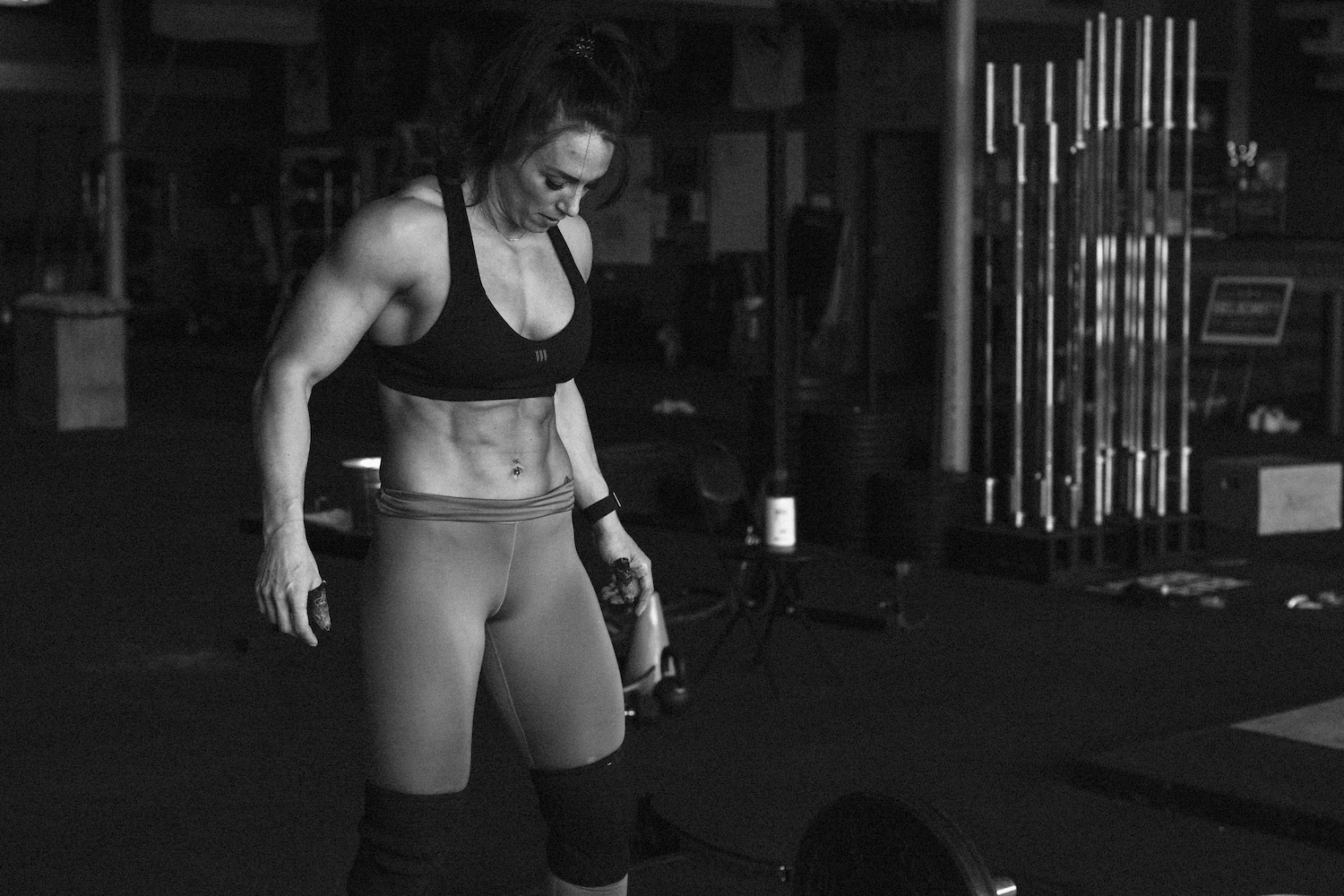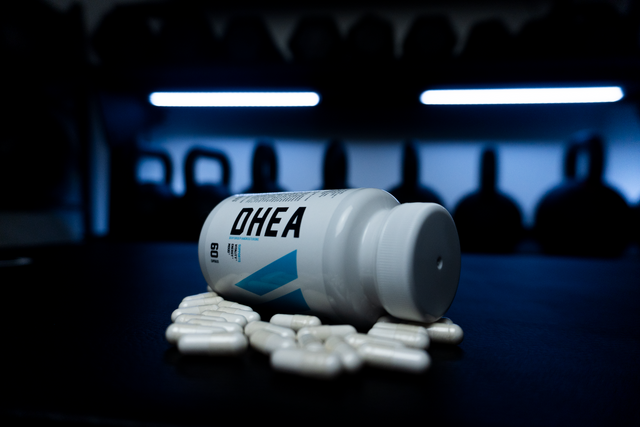When it comes to hormones that significantly influence our health, testosterone and its more potent counterpart, dihydrotestosterone (DHT), take center stage. While both play essential roles in various bodily functions, they exhibit distinct differences that can profoundly impact physical and mental well-being. Testosterone is vital for muscle growth, mood regulation, and overall vitality, while DHT is primarily responsible for driving characteristics such as hair growth and prostate health.
Understanding these hormones—how they interact and the roles they play—can shed light on common health concerns, such as hair loss in men and hormonal imbalances in women.
In this article, we'll delve into the nuances of dihydrotestosterone versus testosterone, illuminating their key differences and exploring their broader implications for health. Whether you're navigating age-related changes or evaluating any hormonal issues, gaining clarity on these essential hormones is the first step toward informed health decisions.
The Biological Roles of Testosterone and Dihydrotestosterone (DHT)
What Is Testosterone?
Testosterone is a crucial hormone within the human body, often associated with male characteristics and vitality—though it is present in both men and women. Produced primarily in the testes in men and the ovaries in women, with small amounts also produced by the adrenal glands, testosterone plays a pivotal role in numerous physiological processes. It is responsible for the development of male reproductive tissues such as the testes and prostate, as well as promoting secondary sexual characteristics including increased muscle and bone mass, and the growth of body hair (Mayo Clinic, 2022).
Testosterone's Impact on Mental and Emotional Health
Beyond its role in physical development, testosterone significantly impacts mental and emotional health. Adequate levels of this hormone are linked to mood regulation, cognitive function, and energy levels. Individuals with balanced testosterone levels often report better overall well-being, higher motivation, and increased concentration. Conversely, low testosterone can lead to mood swings, depression, and cognitive impairments, affecting one's quality of life (Zarrouf et al., 2009, Journal of Psychiatric Practice).
The Role of Testosterone in Metabolic Health
The Biological Roles of Testosterone and Dihydrotestosterone (DHT)
What Is Testosterone
Testosterone is also essential for metabolic health. It influences fat distribution, muscle mass, and strength, contributing to overall body composition. This hormone interacts with insulin and other metabolic pathways, affecting how the body stores and uses fat. Hence, testosterone levels can influence the risk of conditions such as obesity, type 2 diabetes, and cardiovascular disease (Kelly & Jones, 2013, Endocrine Reviews). Maintaining healthy testosterone levels is, therefore, vital for overall health and longevity.
The Biological Roles of Dihydrotestosterone (DHT)
What Is DHT?
Dihydrotestosterone (DHT) is a derivative of testosterone, formed when it is converted by the enzyme 5-alpha reductase. Though less well-known than testosterone, DHT is a potent androgen that plays a critical role in the development of male characteristics and certain bodily functions. Its most notable role is during embryonic development, where it is crucial for the formation of male genitalia. Without DHT, the external male sex organs would not develop properly (Hiort, 2013, Advances in Experimental Medicine and Biology).
DHT in Adult Male Health
In adulthood, DHT continues to exert significant influence, particularly in tissues where it is present in higher concentrations, such as the skin, liver, prostate, and hair follicles. DHT is more potent than testosterone and binds more strongly to androgen receptors, leading to more pronounced effects. This hormone is key in promoting hair growth in specific areas, such as the face and chest, but can also contribute to hair loss on the scalp—a condition known as androgenetic alopecia (Kaufman, 2002, Journal of Clinical Endocrinology & Metabolism).
DHT and Prostate Health
DHT also plays a role in prostate health. While it is essential for normal prostate function, excessive levels of DHT can lead to conditions such as benign prostatic hyperplasia (BPH), where the prostate enlarges and causes urinary issues (Nickel, 2008, The Canadian Journal of Urology). This delicate balance highlights the importance of DHT in maintaining specific aspects of male health but also the potential problems associated with its overproduction.
Key Differences Between Dihydrotestosterone (DHT) and Testosterone
DHT vs. Testosterone: What Sets Them Apart?
Though both testosterone and dihydrotestosterone (DHT) are androgens, they have distinct roles and effects in the body. One of the primary differences lies in their androgenic potency. DHT is approximately five times more potent than testosterone due to its stronger binding affinity to androgen receptors (Zhou et al., 1995, Endocrinology). This enables DHT to elicit a more intense androgenic response even at lower concentrations.
Another critical difference is their distribution across tissues. Testosterone circulates systemically, acting on a broad range of tissues, whereas DHT is highly localized to the skin, prostate, and hair follicles. This localized effect means DHT often has targeted outcomes, which can be beneficial (e.g., facial hair growth) or detrimental (e.g., scalp hair loss). For example, DHT plays a pivotal role in androgenetic alopecia, or male pattern baldness, by shrinking scalp hair follicles (Kaufman, 2002, Journal of Clinical Endocrinology & Metabolism).
Metabolic Pathways and Physical Effects
Testosterone and DHT also differ metabolically. Testosterone is key for muscle growth, fat distribution, and metabolic rate, making it essential for athletic performance and body composition. In contrast, DHT does not significantly contribute to muscle hypertrophy, but it has more pronounced effects on the skin and sebaceous glands. Understanding these differences is essential when developing treatments for hormone-related health issues or optimizing performance through hormonal balance.
Effects of Testosterone on Health and Well-being
Physical and Performance Benefits
Testosterone has a multifaceted impact on health, touching on both physical and psychological well-being. Physically, testosterone promotes muscle mass, bone density, and strength, contributing to improved athletic performance and metabolic function (Basaria, 2010, Journal of Clinical Endocrinology & Metabolism). Higher levels are associated with increased lean mass and lower body fat, essential for maintaining a healthy physique.
Mental and Emotional Health
Mentally, testosterone plays a crucial role in mood regulation, motivation, energy levels, and cognitive sharpness. Low levels can contribute to depression, brain fog, and lack of drive, while balanced levels are linked with higher quality of life and psychological resilience (Zarrouf et al., 2009, Journal of Psychiatric Practice).
Cardiovascular Health
Testosterone’s influence on the cardiovascular system is still under active investigation. It has been shown to impact cholesterol profiles, blood pressure, and vascular function. While the relationship is complex, some studies suggest that low testosterone may be linked to higher cardiovascular risk, reinforcing the need for hormonal balance in supporting heart health (Malkin et al., 2010, Heart journal).
Effects of Dihydrotestosterone on Health and Well-being
Hair Growth and Hair Loss
Dihydrotestosterone has a significant effect on hair physiology. It stimulates body and facial hair growth but is also a leading cause of male pattern baldness due to its role in hair follicle miniaturization on the scalp (Trueb, 2002, Dermatologic Therapy). This makes DHT a primary focus in hair restoration treatments and medications like finasteride.
Prostate Health
DHT is essential for prostate development and function, but excess levels can lead to benign prostatic hyperplasia (BPH)—an enlargement of the prostate that can cause urinary symptoms in aging men (Nickel, 2008, The Canadian Journal of Urology). Proper hormonal regulation is critical to minimize risks associated with DHT excess.
Skin and Acne
DHT significantly affects skin health by increasing sebum production, which can contribute to oily skin and acne, especially during puberty when DHT levels naturally rise. Elevated DHT is closely linked with hormonal acne, making it a common target for dermatological treatment protocols (Zouboulis et al., 2004, Clinical Dermatology).
Understanding the Relationship Between Testosterone and Dihydrotestosterone (DHT)
How Testosterone Converts to DHT
The relationship between testosterone and dihydrotestosterone (DHT) is both intricate and interdependent. DHT is synthesized from testosterone via the enzyme 5-alpha reductase. This enzymatic conversion means that fluctuations in testosterone levels can directly influence DHT levels (Russell & Wilson, 1994, Endocrine Reviews). For example, an increase in circulating testosterone typically results in higher DHT production, which subsequently affects hair, prostate, and skin health.
Role of 5-Alpha Reductase Inhibitors
Since DHT is a downstream metabolite of testosterone, any intervention targeting testosterone metabolism—such as inhibiting 5-alpha reductase—can significantly reduce DHT levels. Medications like finasteride and dutasteride, commonly used to treat male pattern baldness and benign prostatic hyperplasia (BPH), work by blocking this conversion (McConnell et al., 1998, New England Journal of Medicine).
Understanding the testosterone-to-DHT conversion pathway is essential for developing effective therapies for conditions involving androgen excess or deficiency.
Implications of Imbalances: Health Risks and Conditions
Low Testosterone: Physical and Emotional Effects
Low testosterone (hypogonadism) can present with symptoms like chronic fatigue, depression, decreased libido, and loss of muscle mass. Long-term testosterone deficiency may lead to osteoporosis, anemia, and reduced quality of life (Bhasin et al., 2018, JAMA). Hormonal testing and clinical evaluation are essential to determine if testosterone replacement therapy (TRT) is appropriate.
High DHT: Hair Loss and Prostate Complications
Excessive DHT can result in androgenetic alopecia, where scalp hair follicles shrink and eventually stop producing hair. DHT is also strongly implicated in BPH, a non-cancerous enlargement of the prostate that can lead to urinary obstruction and discomfort (Nickel, 2008, Canadian Journal of Urology).
Hormonal Imbalance in Women
Women are not exempt from hormonal imbalance. Elevated testosterone and DHT in women can lead to polycystic ovary syndrome (PCOS), marked by irregular periods, acne, and hirsutism (excessive body hair). These symptoms are often associated with insulin resistance and metabolic dysfunction (Azziz et al., 2004, Journal of Clinical Endocrinology & Metabolism).
Managing Hormonal Health: Tips and Treatments
Lifestyle Strategies to Support Hormonal Balance
Maintaining optimal testosterone and DHT levels starts with foundational lifestyle habits:
-
Exercise regularly: Resistance training is shown to elevate testosterone levels naturally (Kraemer et al., 1998, Sports Medicine).
-
Manage body weight: Reducing body fat helps balance hormonal levels and improves insulin sensitivity.
-
Sleep and stress management: Chronic stress and poor sleep negatively affect the endocrine system.
Nutritional Support for Hormonal Function
A balanced diet rich in micronutrients is essential. Focus on:
-
Zinc (found in red meat, pumpkin seeds): Crucial for testosterone synthesis
-
Vitamin D (from sunlight or supplements): Low levels are linked to low testosterone
-
Omega-3 fatty acids (from fish or flaxseed): Help reduce inflammation and support endocrine health
Limiting processed foods and added sugars can reduce hormonal disruptions and lower the risk of conditions like obesity and type 2 diabetes.
Medical Treatments for Hormonal Imbalance
For clinically diagnosed hormone deficiencies or excess:
-
Testosterone Replacement Therapy (TRT): May be prescribed to men with low testosterone to restore energy, libido, and muscle mass.
-
5-Alpha Reductase Inhibitors: Medications like finasteride can reduce DHT levels, helping treat BPH and male pattern hair loss.
-
Hormonal treatment for PCOS: Includes metformin, lifestyle intervention, and sometimes oral contraceptives to manage androgen excess in women.
Always consult with a licensed healthcare provider to determine the most effective and personalized approach to hormonal health.
Conclusion: The Importance of Understanding DHT for Overall Health
Unlocking the mystery of dihydrotestosterone (DHT) is vital for anyone looking to optimize their health and well-being. This powerful androgen influences various aspects of physical and mental health, from hair growth and prostate function to metabolic and cardiovascular health. Understanding how DHT is produced, its role in the body, and its interplay with other hormones can provide valuable insights into managing conditions associated with elevated DHT levels.
Whether dealing with hair loss, acne, or prostate issues, knowing the impact of DHT can empower individuals to take proactive steps toward better health. Both natural and medical approaches can be effective in managing DHT levels, and a comprehensive strategy that includes dietary changes, lifestyle modifications, and, when necessary, pharmaceutical interventions can offer the best outcomes. Dispelling common myths about DHT can also help individuals make informed decisions about their health and seek appropriate treatments.
In conclusion, understanding DHT is not just for those experiencing specific health issues; it is crucial for everyone. By unlocking the mysteries of DHT, individuals can gain a deeper appreciation of their hormonal health and take charge of their well-being. Whether through medical treatments, natural approaches, or a combination of both, managing DHT levels can lead to improved health outcomes and a better quality of life.













